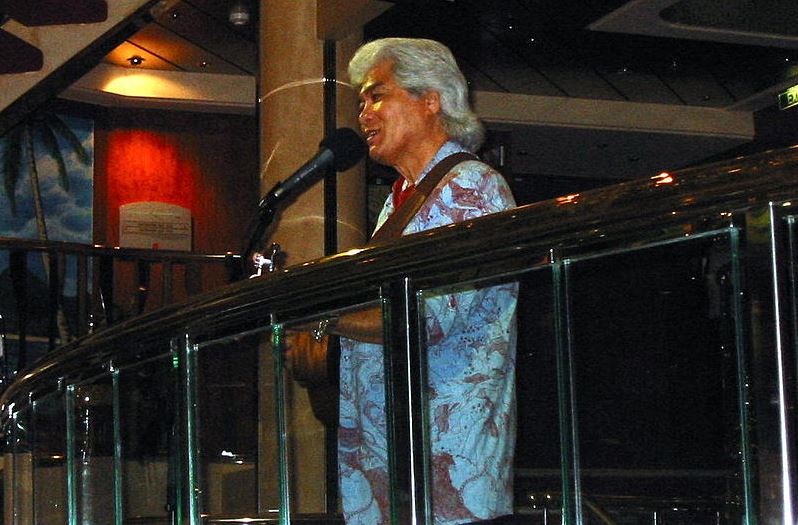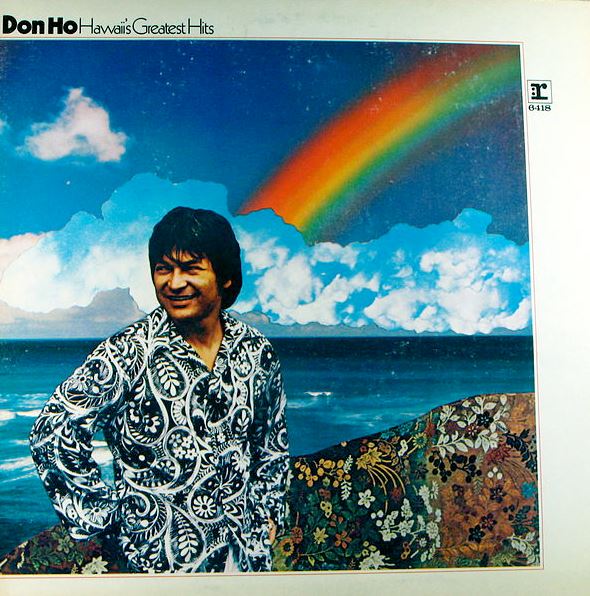Donald Tai Loy Ho or more popularly known as Don Ho was a traditional pop musician, singer, and entertainer in America. He is most famous for the song “Tiny Bubbles” from his album with the same title. He’s also known for his laid-back, aloha style, which made him an island tourist attraction as Diamond Head and hula dancers for around four decades. But before he took up music as his career, he first served in the United States Air Force after he graduated from the University of Hawaii.
If you are interested to learn more about the person behind the popular Hawaiian song, you’re in the right place. Read on as we’re giving you more information about who Don Ho was and his popularity.
Don Ho’s Early Life
It was on August 13, 1930, when Don Ho was born in the Honolulu neighborhood of Kaka’ako. His mother was Emily (Honey) Leimaile Silva, and his father was James Ah You Puao Ho. Don Ho grew up in Kaneohe on the windward side of the island of Oahu. In 1949, he graduated from the Kamehameha Schools, then attended Springfield College in 1950 through a football scholarship. However, he dropped off and decided to go back home to earn a Bachelor’s degree in sociology in 1953 at the University of Hawaii.
Serving in the Military
In 1954, Don Ho entered the United States Air Force. He did his primary training at Columbus AFB, Mississippi, and spent time with the Military Air Transport Service flying C-97s. After that, he transferred to Travis AFB in California. There, he visited the local city of Concord, where he purchased an electronic keyboard from a music store. According to him, that was when all of his passion for music began.
While in the military, he married his high school sweetheart named Melva May Kolokea in 1951. They had six children and were married for 48 years until Melva died in 1999. He traveled from state to state with his family until he was called home to help his mother with their family business, which was a bar called Honey’s. When 1959 came, Don Ho left the United States Air Force because the health of his mother kept on failing.
Don Ho’s Music Career
Don Ho began singing at Honey’s, which eventually became a hotspot for the local entertainment and the growing customers from the Kaneohe Marine Base servicemen. Even though he was no longer in the military, he always honored them, remembering his own years of military service. When 1963 came, Don Ho moved the Kaneohe Honey’s to Waikiki. When it became successful, a promoter named Kimo Wilder McVay asked Don to play at a nightclub called Duke’s, which was owned by Duke Kahanamoku. This was where Don Ho caught the attention of the officials from a record company.
Originally, Don Ho was signed to Reprised Records. In 1965, he released his debut album titled “Don Ho Show” and started to play at high-end places in New York City, Las Vegas, and Lake Tahoe. His second album was released in 1966, which was a live compilation called “Don Ho – Again!”. This album was charted in the early part of the year.
His most famous song, “Tiny Bubbles,” was released in the fall of 1966. It charted on both the pop and easy listening charts, which caused his subsequent album with the same title to stay in the album Top 200 for about a year. In addition to that, there was another song associated with Don Ho, which was titled “Pearly Shells.” His backing group was The Aliis from 1964 to 1969. It was composed of Al Akana, Rudy Aquino, Manny Lagodlagod, Joe Mundo, and Benny Chong.
His music used the usual 1960s pop arrangements, which featured light instrumentation and Hammond organs. Don Ho was well-positioned to capitalize on the growing popularity of the newly admitted state as a tourist destination during the decade. This was also due to cheap air travel and the fame of Tiki bars. Aside from ordinary tourists, his shows were also attended by celebrities.
In the second half of the decade, there was a growing movement that emerged in Hawaii to create more traditional forms of music. This also accused Don Ho subtly of being too commercialized and marketed to tourists. However, his popularity did not suffer, and his shows remained popular with tourists.
Later on, he did guest appearances on television series, such as The Brady Bunch, Charlie’s Angels, McCloud, I Dream of Jeannie and Fantasy Island. It was in the late 1960s when his album sales peaked, but he was still able to land a TV series on ABC from 1976 to 1977, which was called “The Don Ho Show” variety program. It aired every weekday morning.
Don Ho also worked with his children either backstage, with his business, or onstage. He loved working with them and teaching them about the entertainment business. In 2000, his daughter Hoku performed with him in a show in Waikiki. After that, she went on to become a nationally known recording artist in her own right. In 2005, Don Ho sang a song that was used as the opening theme to the movie, Aloha, Scooby-Doo!
Don Ho’s Illness and Death
From 1995, Don Ho’s health began to decline, and he suffered a mild stroke. He also suffered other illnesses, which developed cardiomegaly, which is an enlarged heart unrelated to coronary artery disease. This left him with only about 30% of normal cardiac capacity.
Don Ho was diagnosed with cardiomyopathy in 2005 and had pacemaker implantation. In the same year, he underwent heart surgery in Thailand, where his own blood-derived stem cells were injected by surgeons into his heart. After the surgery, he said that he was feeling much better.
However, in 2006, Don Ho suffered a cardiac arrest. In April the following year, he suffered heart failure and died in his Waikiki apartment. His remains were cremated, and the ashes were scattered to the sea.
Conclusion
Don Ho was indeed among the most iconic Hawaiian entertainers. His songs Tiny Bubbles and as well as Pearly Shells were very popular, not just in Hawaii but all over the world. Even today, there are still many people who listen and dance to these songs. Whenever there is a Hawaiian-themed party, these songs will always be played. We hope this article helped you learn more about Don Ho.


